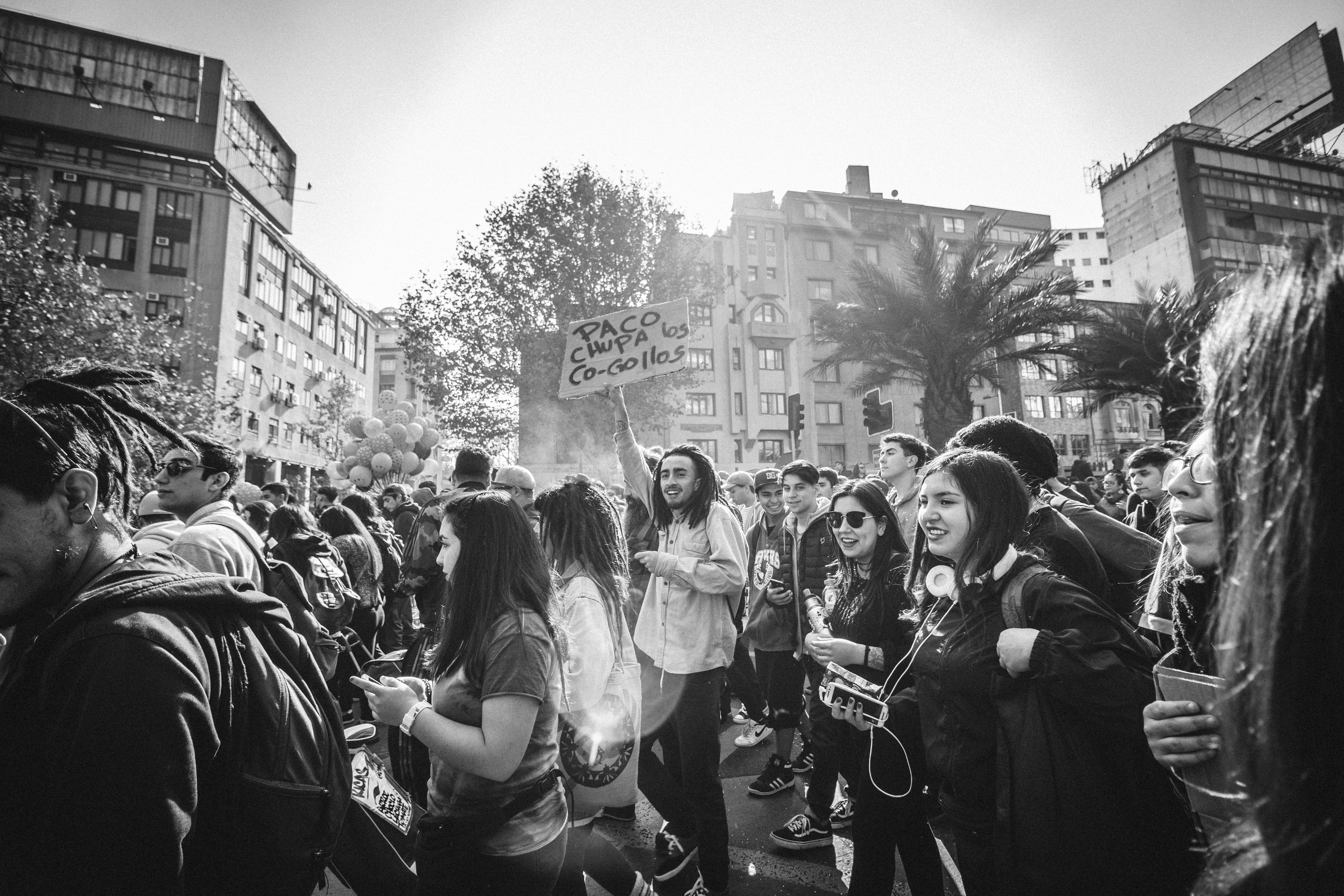By Venice Hancock.
What started as a general protest against a rise in public transport cost has grown into a full blown social uprising. The conflict, which has now claimed the lives of at least twelve people, quickly turned violent when the government sent out soldiers and police officers in an attempt to control the peaceful masses. The situation has escalated into the country’s most severe political crisis since the end of Pinochet’s dictatorship nearly twenty years ago.
Chilean President Sebastian Piñera, who also happens to be one of the country’s richest businessmen, called a state of emergency in the country’s capital and other major cities on the evening of October 18th. He also gave a brief televised press conference where he declared:
“We are at war against a powerful enemy, who is willing to use violence without any limits”.
This fuelled further unrest amongst the people and the President’s decision to send out further troops to guard major public areas in the cities.
Despite this, millions of people have insisted on gathering every day on Plaza Italia, in the heart of Santiago, to criticise the government and to show that this revolt is about much more than an increase in subway fares. The people have been heard chanting “Chile has Awoken! Chile has awoken” as they found themselves surrounded by tanks military helicopters. Protestors are calling out the country’s deeply rooted social inequalities. The Chilean economy creates a lot of wealth for a small amount of people, but it mostly generates extreme inequalities. This means that pressing issues of poverty and profound economic inequalities are never addressed by what is perceived as an elitist government. The Chilean people are also denouncing the bad quality of healthcare, education, the pension system as well as a myriad of other issues like having to work precarious jobs, corruption within the police department and the problematic privatisation of water.
While most of the protests have been peaceful, there have been some more violent acts of resistance. Multiple subway stations have been burned down or severely damaged and there have been multiple reports of the use of Molotov cocktails in the south of the capital.
This is a crucial moment in Chile’s political and social history and a manifestation of what many have branded a crisis of neoliberalism. However violent this civilian unrest may become, it contains and is driven by hope for a fairer and better society. It has given Chileans the motivation to call for decisive and systemic change to the many economic inequalities that they have had to suffer through the years. The outcome of the riots is very uncertain at the moment as the situation remains highly unstable and chaotic. A resolution will depend heavily on President Piñera’s next steps and how he chooses to respond to this crisis.

